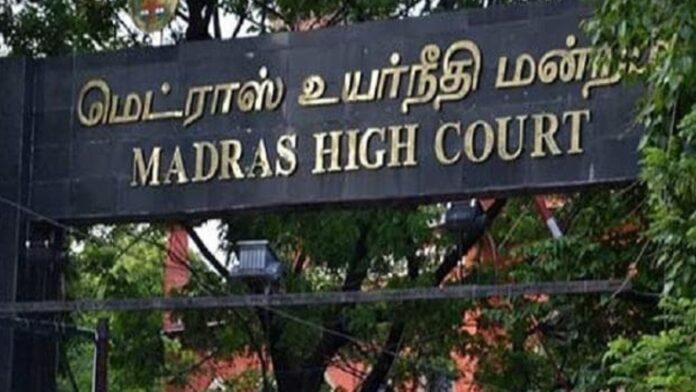As per the rules of Indian Law, if a member of the Scheduled Caste community converts to a religion other than Hinduism, Sikhism, or Buddhism, he loses his membership of that caste.
In its recent judgment, Madras High Court ruled that displaying religious symbols (such as the holy cross) cannot be considered as the ground of cancelling or classifying a person as a member of Scheduled Caste.
What our Law says In This Regard
In its judgement which is sure to send a strong missive to government on reclassifying a country’s population on the basis of particular religious marks such as using the holy cross or other things, Madras High Court judges while objecting to the cancellation of a classified certificate of a person on the basis of his conversion to another religion in such a case, Article 366 of the Constitution of India rules that doing so on the basis of any one’s caste, race, color or tribe was not acceptable.
Under Article 341 of the Constitution, the President of India has been authorized to specify these groups as (Scheduled Castes )SCs in relation to a state or Union Territory on which an order had been issued on public notification. In this regard, Constitution (Scheduled Castes) Order, 1950 had also been passed in keeping with the provision.
However, lawmakers of the country realized the need of amending such notification and ruled that a rule before being made law must be passed by the both Houses of Parliament. A 1956 amendment to the said order specified that individuals professing religions other than Hinduism or Sikhism may not claim to be members of a Scheduled Caste group.
As per provisions of our Constitution, the Legal definition of a Hindu is also built upon Hindu law which also incorporates the Hindu Marriage Act, of 1955; the Hindu Adoptions and Maintenance Act, the Hindu Succession Act, and the Hindu Minority and Guardianship Act of 1956.
It also rules that a Hindu by religion in any of its form or development includes individuals from the Buddhist and Jain caste besides the Sikh caste, along with other people not professed to be Muslims, Christians, or Parsis. Such persons are governed under Hindu law.
On August 30 , 2022, a Supreme Court Judges Bench comprising Sanjay Kishan Kaul, A.S. Oka, and Vikram Nath directed the Centre to clarify its position on this matter. They further ruled that the said order was passed in response to a petition which was filed way back in the year 2004 by the National Council of Dalit Christians who were demanding reservation benefit.
On which, the Top Court had ruled that reservation benefits should be extended to those Dalits also who had converted to Christianity. It even directed the Union Government to file its affidavit within three weeks’ time. A hearing on this issue has even started in the Top Court from October 11 this year.
It should be known that the Conversion laws of India are shrouded in complexities also. One of the complexities arising out of conversion is the caste status of a converted individual. The Constitution (Scheduled Caste) Order 1950 states that ” No person who professes a religion different from Hinduism shall be deemed to be a member of Scheduled Caste community.”
This order was first amended in the year 1956 to include and incorporate Sikhs which was again amended in 1990 . A further demand was made by the Buddhist community to incorporate Buddhists under this provision. As per the provisions made after 1990 amendment of the Constitution, Scheduled Castes who have converted to Buddhism are entitled to avail of the benefits. However, the Supreme Court refused to give them any kind of such a benefit.
In another case involving Kailash Sonkar v Maya, ruling which was given by the Supreme Court judges was that as wife was a member of the scheduled caste by birth and her husband, Jai Prakash Shalwar, also belonged to a Scheduled caste called Katia caste which she later on, denied saying that she was a Christian by birth and rejected the thing that her father’s name was not John Wesley as alleged by the appellant. Her plea found favour with the Returning Officer who accepted her nomination papers. After the poll, Maya Devi received majority of votes, having secured 16,770 votes, and was declared elected, and the appellant lost the election. In this matter the question which came up before the Court was that whether a person would lose his caste after converting to an another religion . On this the Apex Court ruled that there would be no loss of caste in such a case.
In an another case involving Chatturbhuj Vithaldas Jasani v. Moreshwar Parshuram Supreme Court on a query that whether by the act of conversion will the person lose the status of Scheduled Caste despite the fact he converts to a different religion.






